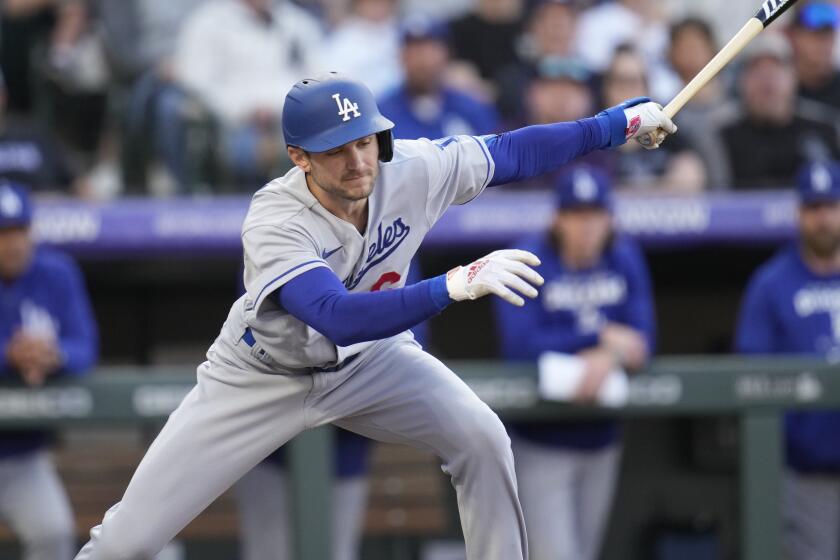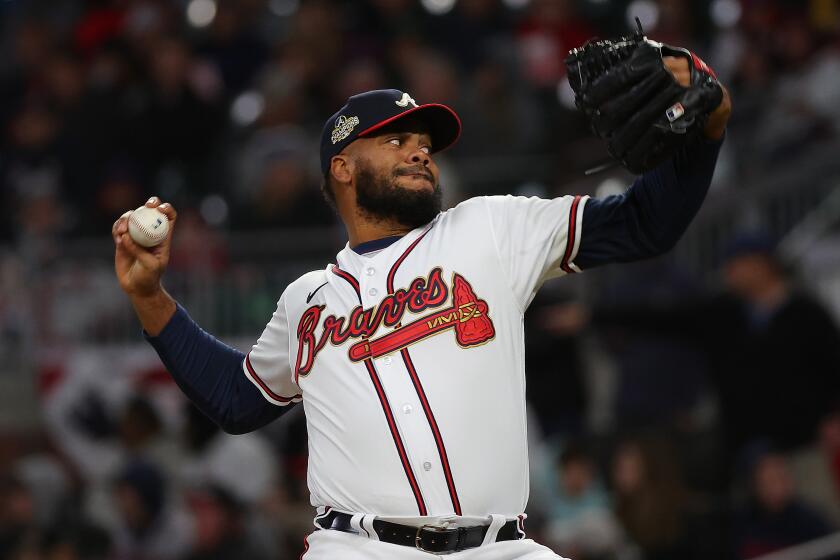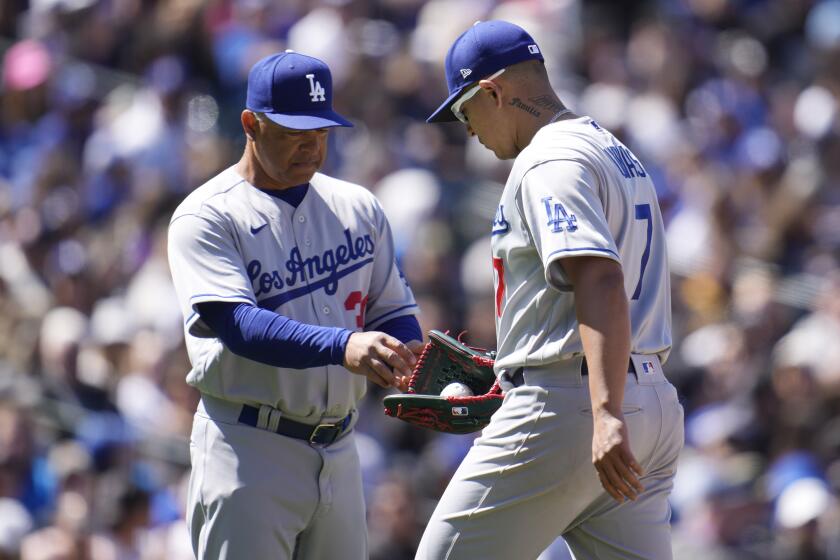Q&A: What’s the deal behind Apple TV’s deal to broadcast baseball games? We asked MLB
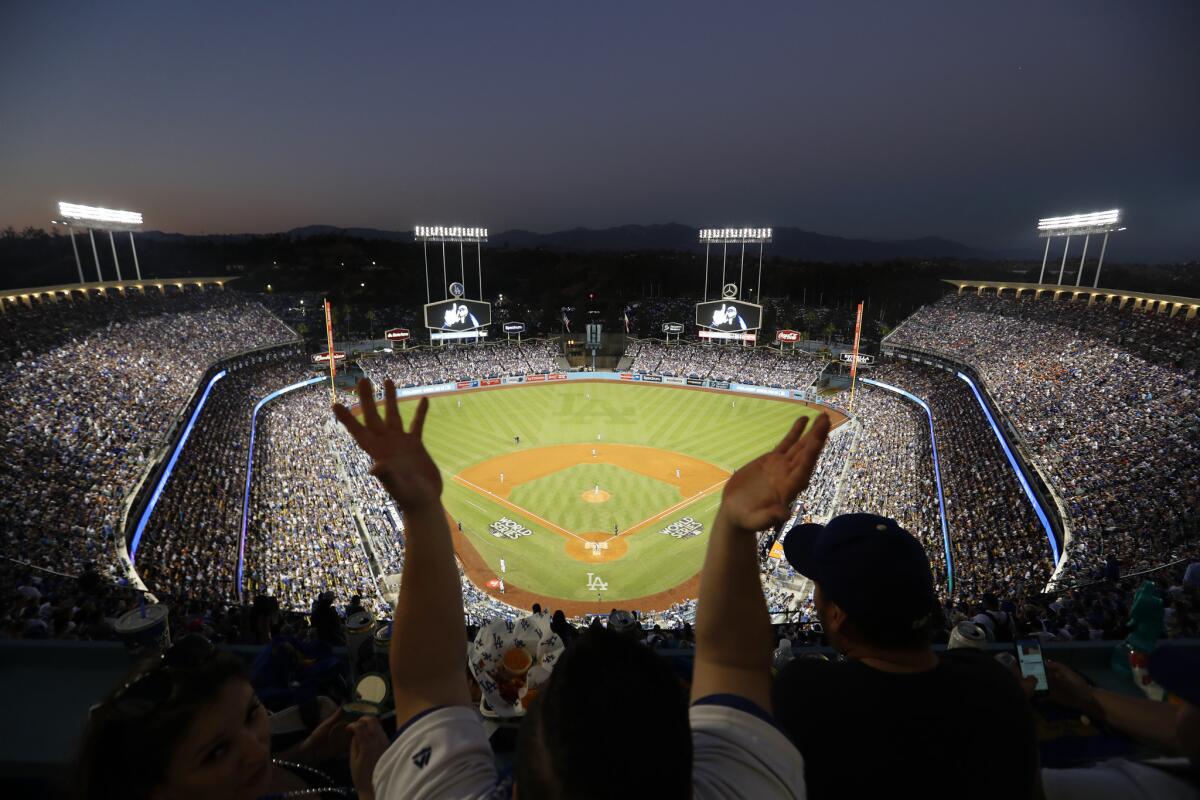
- Share via
For decades now, the way you watch your baseball team has been pretty much the same. You paid a cable or satellite company a monthly fee for a bundle of channels, many of which you would never watch.
Your team’s regional sports network (or RSN) — SportsNet LA for the Dodgers, Bally Sports West for the Angels — was one of those channels. If your team’s game was selected for a national broadcast — on ESPN, Fox, FS1, TBS or MLB Network — you also could find those channels within your bundle. You might have to look up which channel would carry that day’s game, but you already had paid for access to it.
The bundle format is in decline, with customers balking at paying for dozens of channels they never watch and streaming services offering the chance to pay only for the programming you do want to watch. There might be no more critical concern for Major League Baseball, where teams have grown accustomed to ever-higher payments from cable and satellite companies, all based on the concept that each home subscriber should pay perhaps $5 per month for a team, even if 95% of those customers do not watch the games.
Breaking down the Dodgers’ offensive struggles, Craig Kimbrel’s debut as closer, Gavin Lux’s strong play during team’s opening-series loss to the Rockies.
As “cord cutters” cancel cable and satellite subscriptions, joining young “cord nevers” in watching television via streaming services, MLB this year has launched streaming deals with Apple TV+ for Friday night games and Peacock for Sunday morning games. Those games are not available anywhere else. You might already pay for SportsNet LA but, if the Dodgers play on Apple TV+ or Peacock, you cannot watch on SportsNet LA.
If you are a New York Yankees fan with a cable or satellite bundle, you’ll still need to pay extra for Apple TV+, Peacock and Amazon Prime if you want to watch all the Yankees games this season.
The Apple deal is worth $85 million per year to MLB, according to Forbes. The average annual value for all the league’s national broadcast deals — ESPN, Fox, TBS, Apple TV+ and Peacock — is $2 billion.
The Angels played on Apple TV+ last Friday. The Dodgers play on Apple TV+ this Friday. That made this a good time to check in with Noah Garden, chief revenue officer at MLB, on behalf of the many fans wondering why the league appears to have made it more difficult for consumers to watch its product.
(The interview has been edited.)
Why does the Apple deal make sense for MLB?
We have been looking for ways to increase reach for our games on a national scale. And even in the local market, the traditional linear bundle has been under pressure. On top of that, you’ve got the combination of cord-cutters and, more importantly, cord-nevers. And so the opportunity to have a partner such as Apple, who can distribute our product — in this case, doubleheaders on Friday nights — to a huge domestic but also international audience is something that appealed to us.
The other big thing for us, at least initially, is that this is free, in front of a paywall. You don’t need to be a subscriber to Apple+ to access it. We’re pretty excited about it.
Free, for a limited time. (Apple has promised free games through June 24 but could require a subscription thereafter.)
They have the ability to put it behind a paywall. That is something I would probably expect them, on some level, to do. That’s a decision they’ll make down the road.
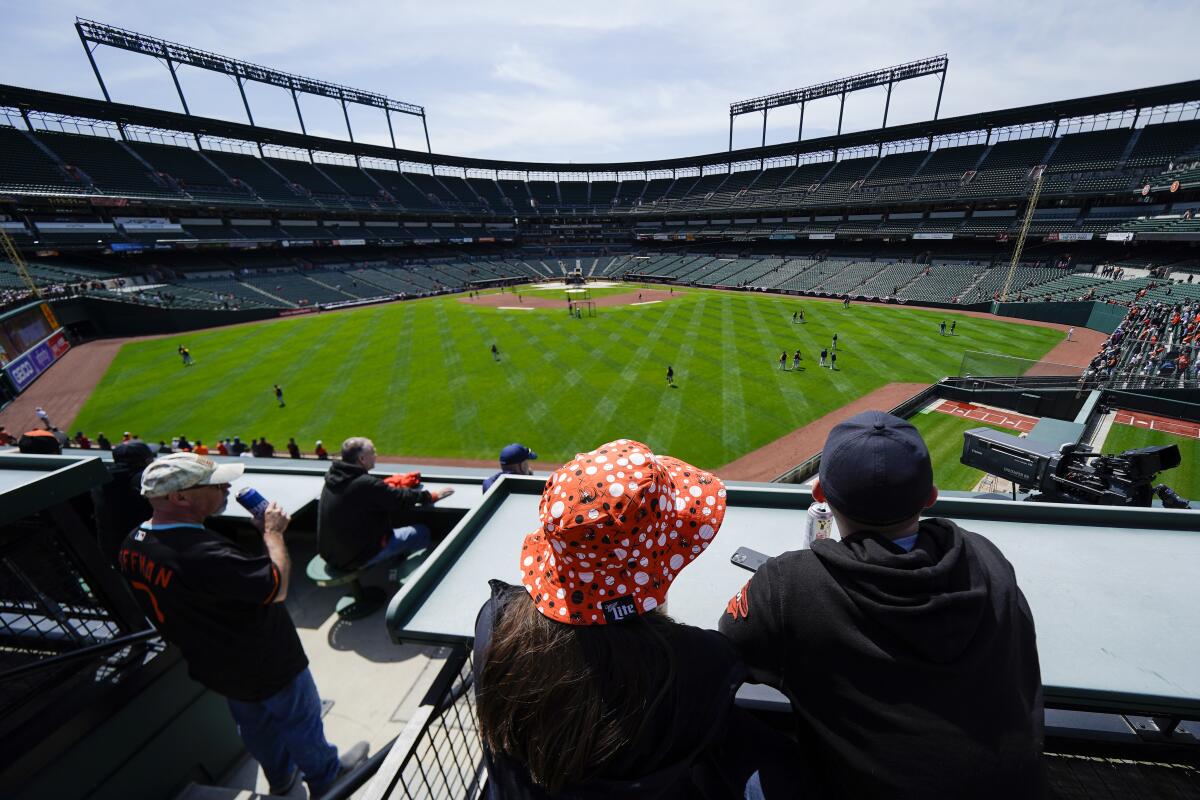
As a fan, I might not be interested in your reach on a national scale. I just want to watch my team play. Why does MLB believe the Apple deal is good for fans?
First of all, any time you have a national game, it takes a local game of some sort of significance and exposes it to more people. So, from our perspective, it’s going to reach a huge domestic and national audience.
I hear what you’re saying on the streaming side. But, if you look at what happened in the pandemic, and behavior with streaming in general, it’s become mainstream. Look at the Oscars. “CODA” just won the [best picture] Oscar. That’s a movie that was only streamed.
I think the conversation a few years ago of, ‘Hey, you’re streaming something and that is somehow going to negatively impact the viewership,’ I don’t think that’s the reality any more. That’s certainly not what we see, across a wide variety of content.
In this case, Apple reaches into every single home, with their products and their app. Taking some of these games and making them national just gives more people the ability to watch them.
Kenley Jansen’s decision to sign with the Braves and Freddie Freeman joining the Dodgers adds an interesting dynamic for two MLB powerhouses in 2022.
Is this the wave of the future, the beginning of the end of the bundle? If I want to see my team play all its games, am I eventually going to need five or six or seven separate streaming subscriptions?
Everything is important. Linear is still the most important for us.
I think what you’re seeing on the streaming side is just a recognition that there are a lot of people that fall outside the bundle. Take L.A., for example. That RSN isn’t even distributed to everybody in L.A. [Cox Cable does not carry SportsNet LA.]
When you talk about a local audience that you’re trying to reach, if you take some of these national games, the idea is to reach a much broader audience. That’s the goal. If we didn’t think that was going to be the effect, we certainly wouldn’t do it. We don’t want less people viewing our content.
I never thought my mother would call me and say, “Have you watched ‘Ozark’ on Netflix?” I didn’t think she would ever find Netflix. But, when everybody was stuck at home in the pandemic, they started consuming every bit of content they could find, and now it’s second nature. We feel like streaming has reached that critical mass, where putting exclusive national games on there are going to be additive to everything else we do and reach the broadest possible audience we can.
The Dodgers’ struggles on Sunday weren’t all Julio Urías’ fault, but they need the 20-game winner to be top-notch if they want to win the World Series.
The Dodgers’ Apple debut comes on Jackie Robinson Day, when the Dodgers and the league celebrate his legacy and promote all that has been done to ensure his legacy lives on. Why is MLB putting the Dodgers on Apple on that day, when fans might have a hard time finding the broadcast?
This is one of the most important pieces of Major League Baseball, from a historical nature. We’re celebrating Jackie, and his breaking barriers 75 years ago. Being able to take that and show it to the masses on a national level is more impactful, from where we’re sitting.
Listen, the calendar turned out that the game was on Friday night, so we had this opportunity. But it wasn’t like we did a deal for Jackie Robinson Day. We did a deal for “Friday Night Baseball,” and it happened to be Jackie Robinson Day, and we happened to have a great opportunity in front of us to take a game that has such historical significance and get it out to a much broader audience than if we just went local with the broadcast.
More to Read
Go beyond the scoreboard
Get the latest on L.A.'s teams in the daily Sports Report newsletter.
You may occasionally receive promotional content from the Los Angeles Times.

